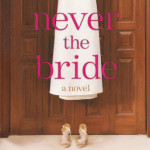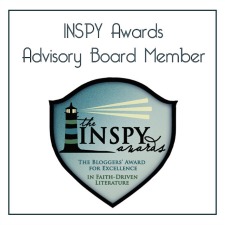 Sarah’s second Wings of Glory novel, A Memory Between Us, was our March selection. Look for her debut novel, A Distant Melody and the final story in the trilogy, Blue Skies Tomorrow, releasing this August.
Sarah’s second Wings of Glory novel, A Memory Between Us, was our March selection. Look for her debut novel, A Distant Melody and the final story in the trilogy, Blue Skies Tomorrow, releasing this August.

RBC:~ I have often wondered how authors come up with their ideas or concepts for books. What sparks the idea and how do you grow the plot for your books?
Sarah:~ The spark of an idea can be anything. The idea for the very first book I wrote (never to be published) came from a dream. Som e of my ideas have come from “what if” questions raised in other books I was writing, movies I’ve seen, people I’ve met, news stories I’ve read, or historical incidents—often a combination of these. For me, characters are the next link. The story spark leads to character ideas, and those eventually lead to plot. Each writer—and each story is unique. The early phase of story development is very nebulous. I kind of play with the idea and characters in my head and see what comes up. If the idea won’t let me go, I know I’m on to something.
e of my ideas have come from “what if” questions raised in other books I was writing, movies I’ve seen, people I’ve met, news stories I’ve read, or historical incidents—often a combination of these. For me, characters are the next link. The story spark leads to character ideas, and those eventually lead to plot. Each writer—and each story is unique. The early phase of story development is very nebulous. I kind of play with the idea and characters in my head and see what comes up. If the idea won’t let me go, I know I’m on to something.
I enjoyed the novel especially the reference to Psalm 23 verse 4. Was that the premise for writing this novel or how did you frame that verse into your writing?
That’s one of the weird things about being a writer. When I read the Bible or listen to sermons, I often find myself thinking, “Oh! That’s exactly what Ruth needs to hear.” I’m sure my pastor thinks I’m very spiritual when I scribble notes in the sermon, but often it’s a story idea. Shh. Don’t tell him. I believe Psalm 23 sparked one of those moments for me. It was exactly what Ruth needed.
Were you able to share your research with other members of your family? Was it an opportunity for them to share?
Sadly, my great-uncle died in 2000 before I started writing this series. I would have loved his input, and I think he’d get a kick out of it. His daughters are thrilled that I was inspired by his stories.
When you started writing did you envisage a trilogy?
I have two unpublished “starter” novels. May they rest in peace. My first  published novel, A Distant Melody, was originally meant to be a standalone, but while doing research, I became enamored with the Eighth Air Force and wanted to tell the full story to V-E Day. Since my hero had two pilot brothers, I decided to write a trilogy, with each book focusing on one brother.
published novel, A Distant Melody, was originally meant to be a standalone, but while doing research, I became enamored with the Eighth Air Force and wanted to tell the full story to V-E Day. Since my hero had two pilot brothers, I decided to write a trilogy, with each book focusing on one brother.
About this time, the character of Lt. Ruth Doherty came to me. When I mentally put Ruth in the same room with Jack, sparks flew!
What was it like doing the research? Was there a lot of information available or was it a challenge?
I enjoy research, but I have to be careful not to get sucked into the research black hole. I need enough research to make the story accurate and realistic, but at some point, I have to stop and actually write the story. There was a lot of information about B-17s and the Eighth Air Force, but I had to wade through it all. However, researching Army nursing and Army hospitals was more difficult and frustrating. There’s much less information.
Both Jack and Ruth had a reasonable amount of internal dialogue happening that was not always apparent to each other or their friends and colleagues. Did you find it difficult to keep true to where they were at without slipping up when each thought was then revealed?
Oh, this is my favourite part of writing! It even has a name—“subtext”—all those things we think but don’t say, the hidden meanings. A lot of it comes out in the rough draft, but I tune it up in editing, and make sure the characters reveal things at just the right time.
Do you prefer to write fiction set in different time periods?
I wrote two contemporary novels (badly) before starting the Wings of Glory series. My next series is  also set during World War II, and I have a vague idea for another series set during the war. I could see myself writing a contemporary story again at some point, but as for other time periods, not for a while. I’ve got a great basic body of research for WWII, and the thought of researching another era is exhausting. However, I’ll never say never. A super story idea could take me anywhere.
also set during World War II, and I have a vague idea for another series set during the war. I could see myself writing a contemporary story again at some point, but as for other time periods, not for a while. I’ve got a great basic body of research for WWII, and the thought of researching another era is exhausting. However, I’ll never say never. A super story idea could take me anywhere.
Why did you choose World War II?
Besides the cute clothes and men in uniform? First of all, there are so many dramatic stories and settings—a novelist’s dream. This was a time when ordinary men had to do extraordinary things, and when women first explored non-traditional roles—while remaining ladies. Plus, I’ve always been fond of that generation, my grandparents’ generation. As a pharmacy resident at a veterans’ hospital, I had the honor of caring for many of these men. As a rule, they were cheerful, kind, and chivalrous, with the solid strength of someone who has been tested—and passed. What more could you want in a hero?
I enjoyed being taken back to 1944 and was wondering how you did your research into England during this time
The best part was visiting England. Thanks to my husband’s frequent flyer miles, I’ve had three opportunities. In addition to seeing London, we went to Bury St. Edmunds and walked through the ruined abbey. I took lots of notes and absorbed everything I could. Even being there in person couldn’t substitute for good old research though. I read lots of books about England during the war, and found some great websites, especially for the town of Bury St. Edmunds and the airfield there.
Often in crises, relationships are formed but don’t last after the crisis has ended. Can you tell us what you think about that?
I’ve noticed that too. I was surprised when reading oral histories from the war describing great friendships forged in the fire—where they had lost touch with each other after the war. Perhaps when peace and prosperity returned, the friendship itself became a reminder of the trauma and was too painful. Sometimes we just have friendships for a season of life, and when that season is over, the friendships pass. It makes me sad, though.
When relationships are formed in extreme circumstances do they have a different quality to those formed in ‘normal’ life?
Absolutely. So many of those friendships did survive the war, despite great geographical distances. When someone’s been there with you in a great crisis, you know they can be t rusted. There’s a scene in the last Lord of the Rings movie, The Return of the King, that epitomizes this. The four hobbits have returned to the Shire after their astounding adventures and visit the local pub. All around them, life goes on as always, unchanged. But the adventurers sit by themselves and exchange a long look. They’ve been tested. They’ve each been proven. They’ve changed and they’re better for it. And no one else will ever truly understand them the way these friends do.
rusted. There’s a scene in the last Lord of the Rings movie, The Return of the King, that epitomizes this. The four hobbits have returned to the Shire after their astounding adventures and visit the local pub. All around them, life goes on as always, unchanged. But the adventurers sit by themselves and exchange a long look. They’ve been tested. They’ve each been proven. They’ve changed and they’re better for it. And no one else will ever truly understand them the way these friends do.
Please share something of your faith journey.
I was raised going to church every Sunday, learning my Bible stories, and memorizing my verses—but what I learned that only good little girls went to heaven. So I did my very best at being a good little girl. When I was ten, we switched to a different church. The first time we went was for a performance of their high school choir. Those kids glowed with the love of Jesus. When they presented the gospel message, I finally understood. It wasn’t about me being good, but about Jesus dying for me. I accepted Christ that day and grew through my school years.
However, when I went away to college, I decided to take a “vacation” from God and have some “fun.” It took me four stupid years to realize “fun” was miserable. I turned back to God in slow, faltering steps. Now I truly saw why I needed a Savior. Since then it’s been a long climbing journey. Like Ruth, I had to learn to shove off shame over my past so God could use me. I’ve discovered a deep love for God’s Word and developed the gift of teaching He gave me. He gave me the assignment to write, and I’ve learned so much through obeying Him. And I know He has a long way to go with me.
I hear you have sold a new series to Revell, Wings of the Nightingale ~ congratulations! Can you share a little about what we can look forward to?
I’m really excited about this series, and thrilled that Revell offered me another contract. Wings of the Nightingale rose directly out of A Memory Between Us. The research into flight nursing for Ruth’s story fascinated me. Five hundr ed women served as the world’s first flight nurses, a truly pioneering job for women at the time. I couldn’t cover it as deeply as I wanted in Ruth’s story, but the research prodded the idea of a trilogy about three friends who are flight nurses. I had a few ideas for romances flitting through my head, and they fit the setting well. The Wings of the Nightingale series will cover the Mediterranean Theater, from North Africa, through Sicily and Italy, and into southern France. It’s a lot of fun so far.
ed women served as the world’s first flight nurses, a truly pioneering job for women at the time. I couldn’t cover it as deeply as I wanted in Ruth’s story, but the research prodded the idea of a trilogy about three friends who are flight nurses. I had a few ideas for romances flitting through my head, and they fit the setting well. The Wings of the Nightingale series will cover the Mediterranean Theater, from North Africa, through Sicily and Italy, and into southern France. It’s a lot of fun so far.
Thank you so very much, Sarah 🙂 I hope we haven’t overwhelmed you!
You’re welcome 🙂
Relz Reviewz Extras
RBC Book Club interview with Sarah ~ Part 1
Review of A Distant Melody
Character spotlight on Allie & Walt












April 26, 2011 at 10:44 pm
Rel, you are the image QUEEN!! The picture of the hobbits – perfect :)That scene always chokes me up.
April 26, 2011 at 11:08 pm
Oh, my! Two of my favorite folks together:) Thanks for the great interview. Sarah is such a gifted writer and researcher! I'm so thankful to count you both as friends.
April 26, 2011 at 11:13 pm
Amazing interview! Congrats to Rel for asking such pondering questions, and Sarah, you were up for it. I teared up at the testimony question. And I'm so glad Sarah, that we're friends – may it be so for a long time and not just a season. Now, if we could get together with Rel . . . guess we'll have to be cyber pals for now. Thanks, ladies!
April 27, 2011 at 11:16 pm
Glad you liked it, Sarah 🙂 Thanks for your hard work in your wonderful responses.
Laura ~ always a delight when you drop by. Thanks for your kind words ~ you are such an encourager!
Carla ~ My book club members ask the best questions, don't they?! Getting together? Sounds like a brilliant idea 🙂
April 28, 2011 at 2:48 am
Wonderful interview! I chuckled at your writing story notes during your pastor's teaching, Sarah. I'd shake my finger, but that would be the pot calling the kettle black. 🙂
April 28, 2011 at 2:51 am
PS, I love your words of praise for the WWII generation. Amen. I miss my grandparents!